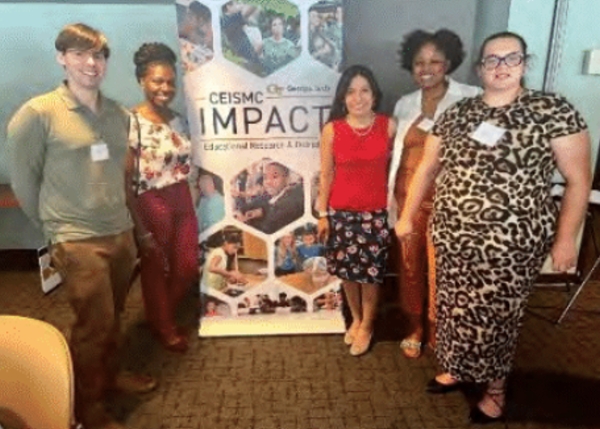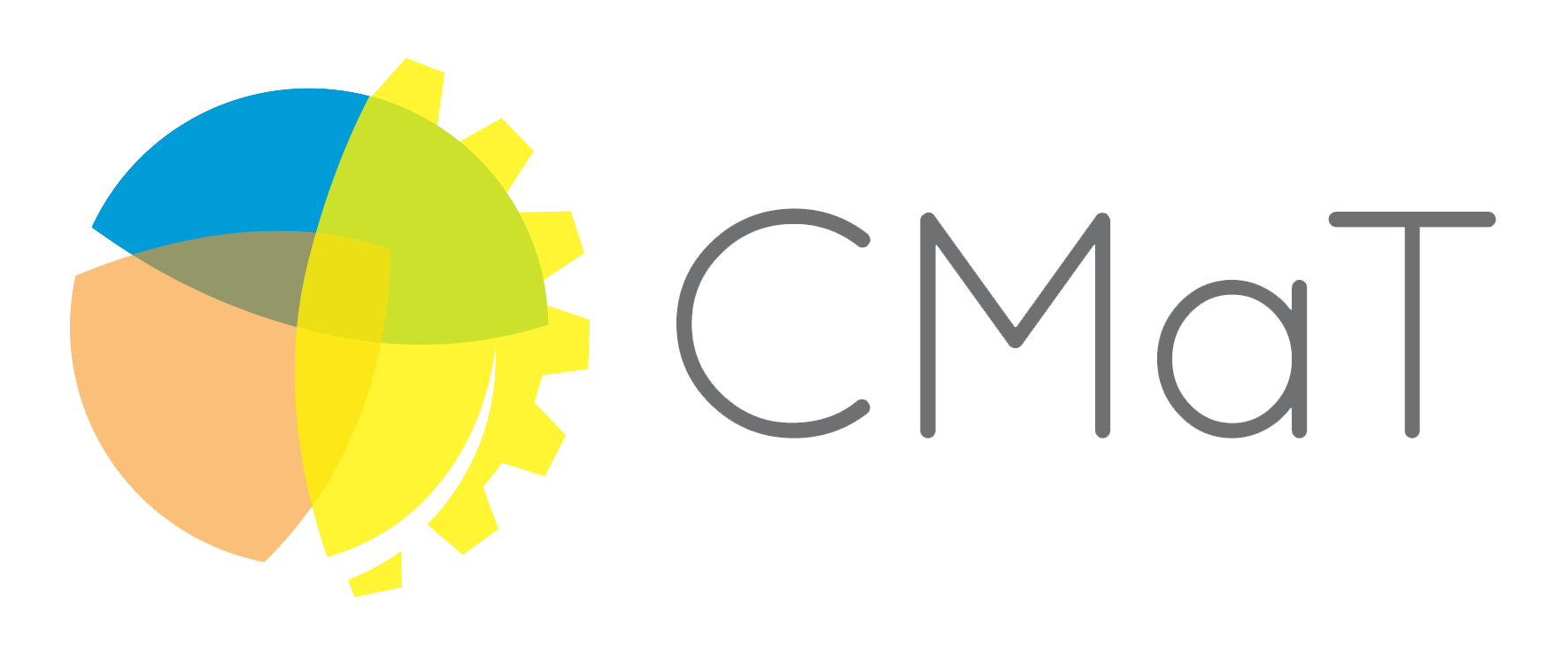Cell Manufacturing Curriculum Now Available for High School Students
Outcome/Accomplishment
Educators at the U.S. National Science Foundation (NSF)-funded Cell Manufacturing Technologies (NSF CMaT) Engineering Research Center (ERC) based at Georgia Tech (GT) have completed curriculum development for high-school level cell manufacturing studies. The curriculum was created with the help of NSF Research Experience for Teachers (RET) participants who were hosted during the Summer of 2023 across NSF CMaT’s university sites, including: the University of Georgia (UGA), the University of Wisconsin-Madison (UWM), the University of Oregon (UO), the University of Pennsylvania (Penn), Emory University (EU) and others.
Impact/Benefits
In Summer 2023, the NSF RET program hosted five high school teachers for a summer research experience. Each teacher was connected with an NSF CMaT lab, assigned a graduate student or post-doc mentor, and engaged in a mentored 6-week hands-on mentored research experience. The teachers explored how their own research, and cell manufacturing more generally, could be taught in their home classrooms. At the conclusion of the RET experience, an education module was developed to teach high school students about cell manufacturing and its impact on society. The RET teachers hosted an online Cell Manufacturing Workshop for other high school STEM teachers to introduce the module and a total of 44 teachers participated from across the United States.
Explanation/Background
A series of curriculum development sessions brought the RET teachers together virtually with members of NSF CMaT leadership to discuss potential curricular needs and strategies to develop appropriate materials for use at the high school level. The high school teachers were also embedded in a larger cohort of participants at their host institution. At GT and UGA, for instance, teachers were connected with a larger cohort of teachers conducting research in campus laboratories through the Georgia Intern Fellowships for Teachers (GIFT) program.
All of the RET participants were exposed to weekly journal clubs held for all summer students by Shalu Suri, Co-Director of NSF CMaT’s Engineering Workforce Development team, that allowed for deeper reflection and writing on cell manufacturing research topics. For the journal club, the participants were grouped into multi-institutional teams to specifically present an article on cell manufacturing that was assigned to them for discussion.
A number of additional multi-institutional NSF CMaT RET events were held to support the NSF RET participants’ exposure to NSF CMaT research. These included: a welcome orientation, lab and mentor introduction meeting, a virtual workshop for high school STEM teachers, NSF CMaT weekly leadership meetings, faculty seminars, and industry panels. Dr. Amanda Rosenweig presented an NSF CMaT-wide Engineering Workforce Development training on the “Importance of Digital Accessibility in Education and Training” which helped to highlight the benefits of virtual format offerings.
Location
Atlanta, GeorgiaStart Year
Advanced Manufacturing
Advanced Manufacturing
Lead Institution
Core Partners
Fact Sheet
Outcome/Accomplishment
Educators at the U.S. National Science Foundation (NSF)-funded Cell Manufacturing Technologies (NSF CMaT) Engineering Research Center (ERC) based at Georgia Tech (GT) have completed curriculum development for high-school level cell manufacturing studies. The curriculum was created with the help of NSF Research Experience for Teachers (RET) participants who were hosted during the Summer of 2023 across NSF CMaT’s university sites, including: the University of Georgia (UGA), the University of Wisconsin-Madison (UWM), the University of Oregon (UO), the University of Pennsylvania (Penn), Emory University (EU) and others.
Location
Atlanta, GeorgiaStart Year
Advanced Manufacturing
Advanced Manufacturing
Lead Institution
Core Partners
Fact Sheet
Impact/benefits
In Summer 2023, the NSF RET program hosted five high school teachers for a summer research experience. Each teacher was connected with an NSF CMaT lab, assigned a graduate student or post-doc mentor, and engaged in a mentored 6-week hands-on mentored research experience. The teachers explored how their own research, and cell manufacturing more generally, could be taught in their home classrooms. At the conclusion of the RET experience, an education module was developed to teach high school students about cell manufacturing and its impact on society. The RET teachers hosted an online Cell Manufacturing Workshop for other high school STEM teachers to introduce the module and a total of 44 teachers participated from across the United States.
Explanation/Background
A series of curriculum development sessions brought the RET teachers together virtually with members of NSF CMaT leadership to discuss potential curricular needs and strategies to develop appropriate materials for use at the high school level. The high school teachers were also embedded in a larger cohort of participants at their host institution. At GT and UGA, for instance, teachers were connected with a larger cohort of teachers conducting research in campus laboratories through the Georgia Intern Fellowships for Teachers (GIFT) program.
All of the RET participants were exposed to weekly journal clubs held for all summer students by Shalu Suri, Co-Director of NSF CMaT’s Engineering Workforce Development team, that allowed for deeper reflection and writing on cell manufacturing research topics. For the journal club, the participants were grouped into multi-institutional teams to specifically present an article on cell manufacturing that was assigned to them for discussion.
A number of additional multi-institutional NSF CMaT RET events were held to support the NSF RET participants’ exposure to NSF CMaT research. These included: a welcome orientation, lab and mentor introduction meeting, a virtual workshop for high school STEM teachers, NSF CMaT weekly leadership meetings, faculty seminars, and industry panels. Dr. Amanda Rosenweig presented an NSF CMaT-wide Engineering Workforce Development training on the “Importance of Digital Accessibility in Education and Training” which helped to highlight the benefits of virtual format offerings.

